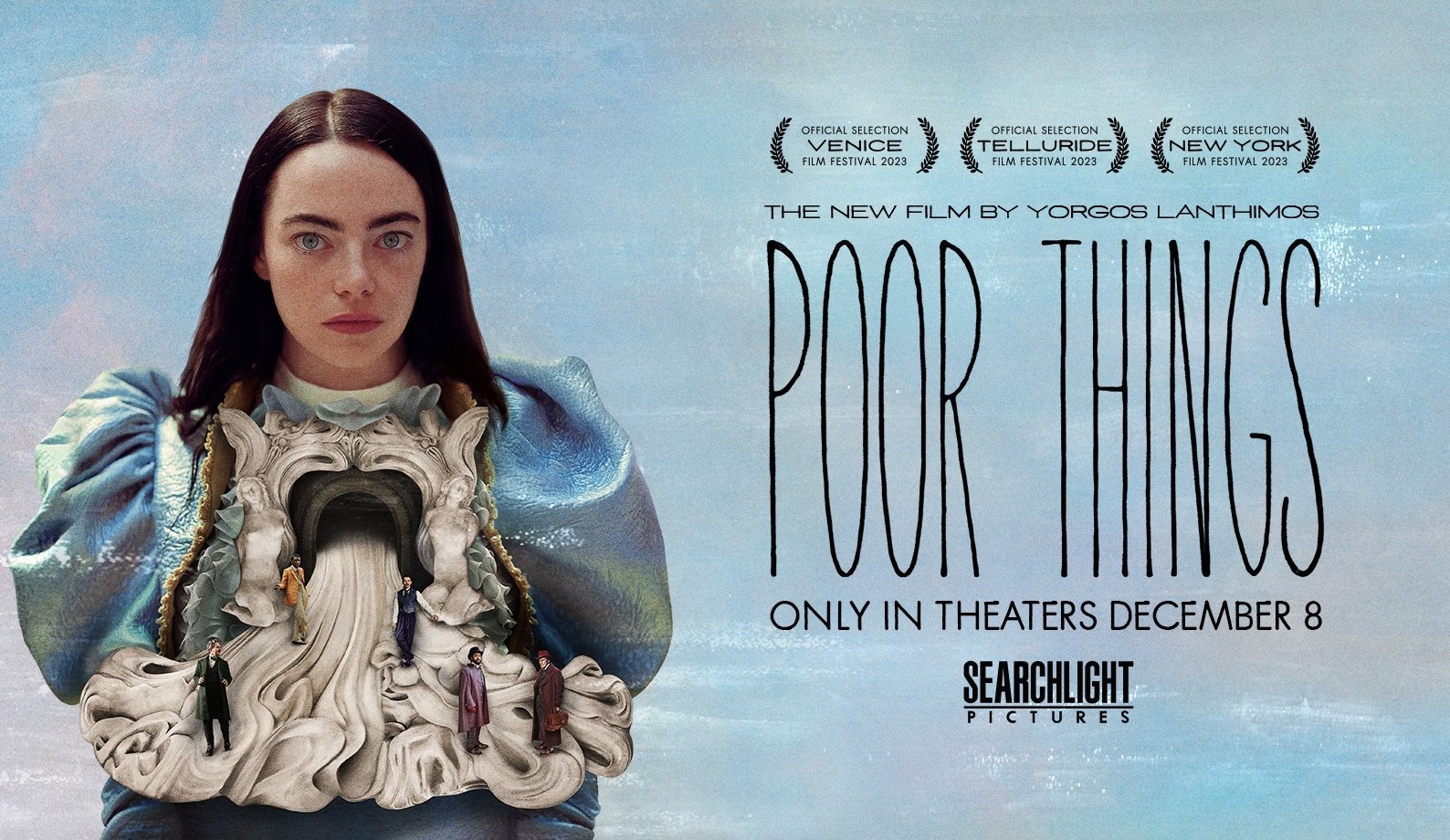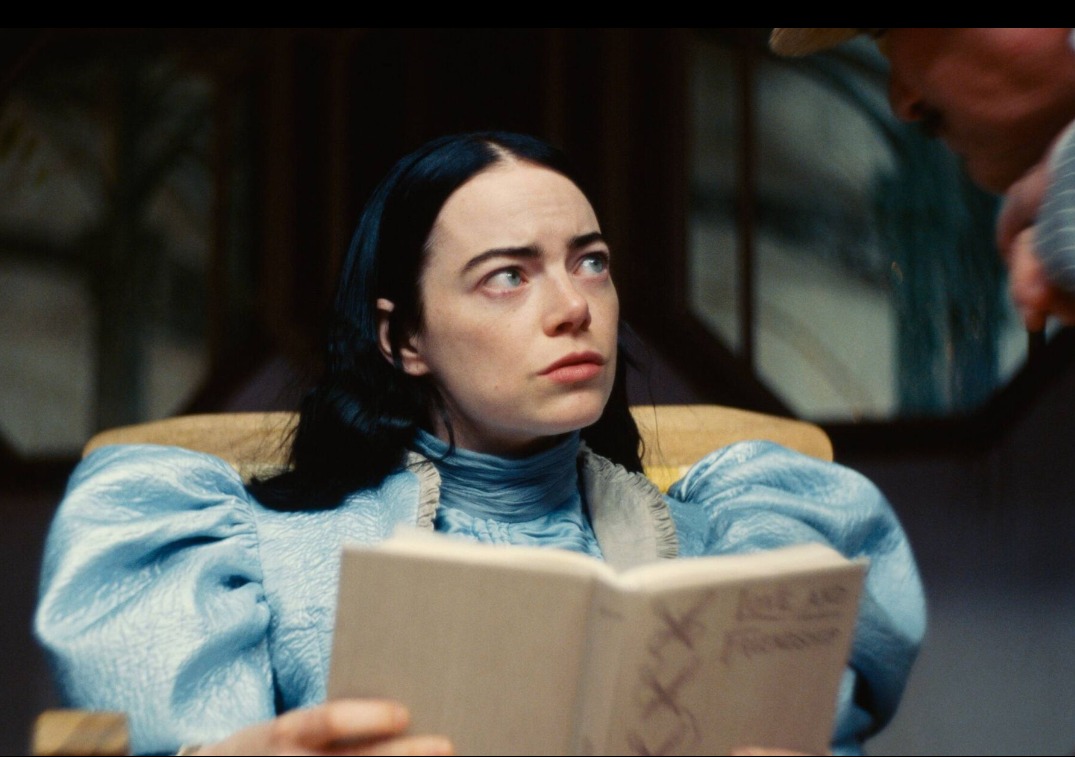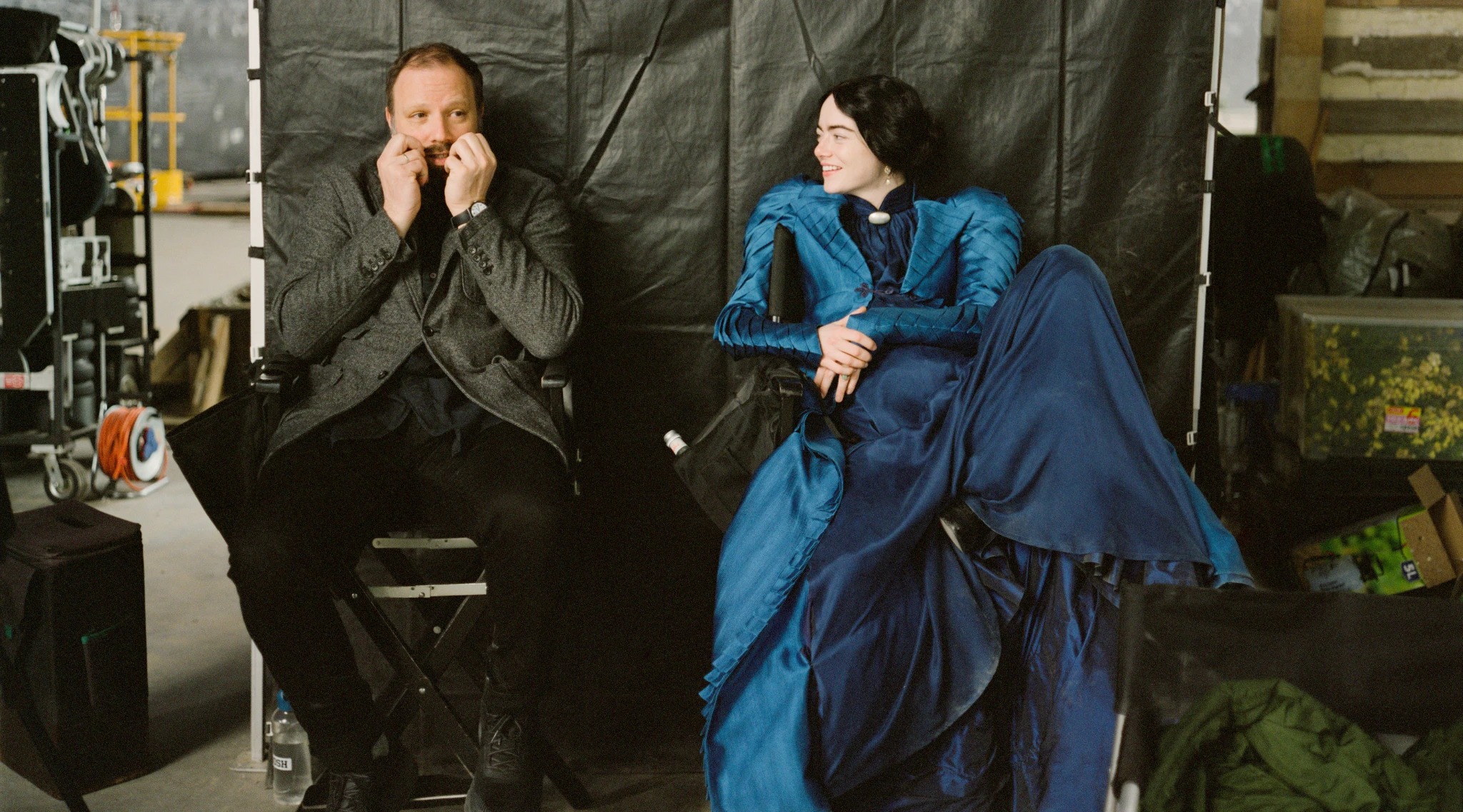Poor Things (2023)

“Poor Things,” directed by Yorgos Lanthimos and released in 2023, is a visually striking and thematically rich film that offers a daring reinterpretation of Alasdair Gray’s 1992 novel of the same name. With a screenplay by Tony McNamara, the film stars Emma Stone, Willem Dafoe, and Mark Ruffalo, delivering an engaging narrative that intertwines elements of gothic horror, dark comedy, and philosophical inquiry. Through its exploration of identity, autonomy, and societal norms, “Poor Things” emerges as a thought-provoking commentary on the nature of existence and the quest for self-discovery.
The film is set in a surreal, Victorian-inspired world that feels both familiar and otherworldly. At its heart is the story of Bella Baxter, played brilliantly by Emma Stone, a young woman who is brought back to life by the unconventional and eccentric scientist Dr. Godwin Baxter, portrayed by Willem Dafoe. This resurrection is not just a physical restoration; it symbolizes a rebirth that allows Bella to explore her identity beyond the constraints imposed by society. The film’s unique premise provides a rich backdrop for examining the complexities of womanhood and autonomy.
Bella’s character is a remarkable embodiment of the film’s themes. Initially, she is portrayed as a naive and curious individual, eager to discover the world around her. As she navigates her new life, she challenges societal expectations and explores her desires, demonstrating a remarkable journey of self-empowerment. Emma Stone delivers a captivating performance, imbuing Bella with a sense of wonder and determination that resonates with audiences. Her evolution from a passive participant in her life to an assertive agent of change serves as a central narrative arc that drives the film forward.
Dr. Baxter, as the mad scientist figure, represents both the brilliance and the hubris of scientific experimentation. His motivations for resurrecting Bella are complex, oscillating between genuine care and a desire to exert control. Willem Dafoe’s portrayal of Baxter is both humorous and unsettling, capturing the character’s eccentricities and moral ambiguities. The relationship between Bella and Baxter is fraught with tension, reflecting the delicate balance between creator and creation, and the ethical implications of scientific exploration.

The film’s aesthetic is one of its most striking features. Yorgos Lanthimos, known for his distinctive visual style, creates a vivid and imaginative world that enhances the narrative. The production design is a blend of gothic elements and whimsical surrealism, with elaborate costumes and meticulously crafted sets that immerse viewers in the film’s unique atmosphere. The cinematography, characterized by its bold colors and striking compositions, elevates the storytelling, reinforcing the emotional beats and the fantastical elements of the narrative.
The screenplay by Tony McNamara cleverly weaves humor into the darker aspects of the story, creating a balance that engages viewers while prompting deeper reflection. The dialogue is sharp and witty, filled with moments of absurdity that highlight the characters’ struggles and aspirations. This blend of humor and pathos allows the film to explore serious themes without losing its sense of playfulness, making it accessible to a wide audience.

As Bella ventures into the world, she encounters various characters who challenge her perceptions and contribute to her growth. Mark Ruffalo plays Duncan, a charming and roguish figure who becomes a significant influence in Bella’s journey. Their relationship explores themes of love, desire, and the complexities of human connection. Through Duncan, Bella confronts societal norms and expectations surrounding romance and relationships, further pushing the boundaries of her identity.
One of the film’s central themes is the exploration of female autonomy and the societal constraints that often inhibit it. Bella’s journey becomes a powerful metaphor for the struggle many women face in asserting their independence and defining their own identities. As she confronts patriarchal norms and the expectations placed upon her, the film prompts viewers to reflect on broader issues of gender and power dynamics.
The narrative also delves into the philosophical implications of resurrection and what it means to be truly alive. Bella’s experiences raise questions about the nature of consciousness, agency, and the essence of identity. The film challenges the notion of a fixed self, suggesting that identity is fluid and shaped by experiences, choices, and relationships. This exploration of selfhood resonates deeply, inviting viewers to contemplate their own identities in an ever-changing world.

The climax of the film is both visually and emotionally impactful, culminating in a confrontation that forces Bella to reconcile her newfound autonomy with the relationships she has formed. This resolution underscores the film’s central message about the importance of self-discovery and the courage required to embrace one’s true self. As Bella asserts her independence, she becomes a symbol of empowerment, inspiring audiences to embrace their own journeys of self-exploration.
In conclusion, “Poor Things” is a bold and imaginative film that pushes the boundaries of storytelling and explores profound themes of identity, autonomy, and the complexities of the human experience. Through its striking visuals, compelling performances, and thought-provoking narrative, Yorgos Lanthimos has crafted a cinematic experience that resonates on multiple levels. Emma Stone’s portrayal of Bella Baxter is both captivating and inspiring, making her journey a powerful exploration of what it means to be truly alive. “Poor Things” stands as a testament to the power of storytelling, inviting viewers to reflect on their own identities while immersing them in a world of whimsy and wonder.











